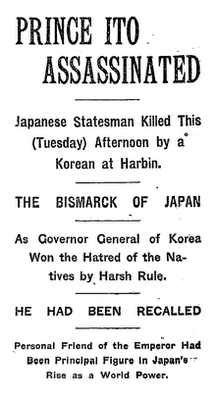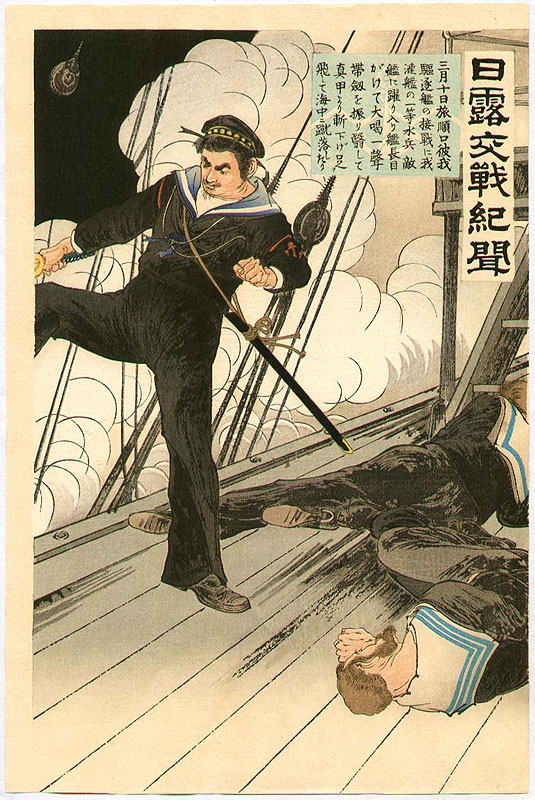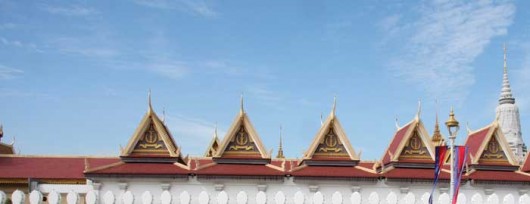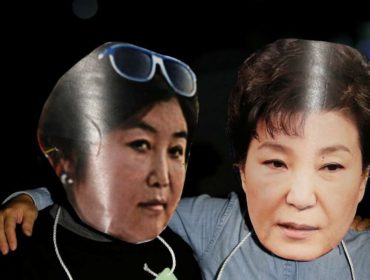“Queering Korean Literature” is a series of introductions to important “same-sex” texts in modern Korean literature and relevant media discourse , presented chronologically from the early 20th century to the present. “Queering literature” means expanding the scope of literary studies to include non-heteronormative perspectives (such as LGBTIQ).
The early modern Korean author and social activist Yi Gwang-su (1892-1950) is the first “same-sex” writer in the series.
By Gabriel Sylvian
(1)
Author: Yi Gwang-su (1892-1950)
Work: “Maybe Love” (Aika/Salanginga) (1909)
Genre: Short story
Plot summary: Mun’gil is a Korean student studying in Tokyo. He falls in love with a Japanese upperclassman named Misao when admiring him at a school sports meet. Mun’gil becomes obsessed with Misao, filling the pages of his diary with longing and desire for him. He even cuts his finger and writes a letter to Misao in his own blood. One evening, an excited Mun’gil goes to visit Misao at his boarding house, but Misao rebuffs him, refusing to even greet his eager visitor. Dejected, Mungil decides to commit suicide by lying down on the railroad tracks, crying and looking up at the night sky.
Commentary and analysis:

Why doesn’t Korea, a country proud of many “firsts” and “bests,” memorialize the first short story ever written by its first modern writer? To be sure, the maidenwork of the “father of modern Korean literature” Yi Gwang-su, is not found in high school literature textbooks alongside many other “firsts” and “bests” from the country’s long history. Discovered in Japan in the 1970s by Korea’s foremost literary critic Gim Yun-shik, Yi’s first short story, “Maybe Love” (1909) is still not included in any of “Complete Works of Yi Gwang-su” published to date. What’s more, most of Yi’s early stories through the mid-1910s—stories whose themes are organically connected with the literary world view that produced “Maybe Love”—have been dismissed by Korean critics as mere “dabblings” and “immature efforts at writing,” and swept away from the spotlight of Korean literary history. Some Korean critics have even misleadingly named Mujeong (The Heartless) (1917) as Korea’s “first modern novel,” as though to erase Yi’s earliest works from existence. It is important to note that the title of Yi’s most famous novel Mujeong (literally, “No Heart”) signals an intentional reversal from the “heart”–felt,” emotion-based literature of Yi’s early period beginning with “Maybe Love.” Mujeong urges the Korean people to compromise and curtail their emotions (“heart”) for the sake of the greater national good and its scientific destiny.
Adding to the confusion is Yi’s tainted reputation as a pro-Japanese writer who several decades later produced stories and poems calling for “equality” for Koreans wishing to join the Japanese army. Not surprisingly, “Maybe Love,” written decades earlier in the Japanese language while Yi was a student in Tokyo, has been jumbled together indiscriminately with Yi’s much later, manifestly pro-Japanese writings from the war years. But understood in its proper context, the very opposite proves to be the case. Yi’s first short story is wholly patriotic; critical of Japanese imperialism/racism; and, for queer history, also stands out as a work that is, in essence, queer (to knowingly inject an anachronism) to a greater extent than any public work written in the West or Asia at the time. How did this come about?
From angel to devil
By the fall of 1909, the 17-year old Korean student Yi Gwang-su was fed up. He was so furious at the Japanese and American faculty at Meiji Gakuin, his mission school in Tokyo, that he could not maintain his former “Christian piety” any longer. The blatant racism and ultra-nationalism/imperialism he witnessed on a day-to-day basis at Meiji Gakuin resulted in a complete turn-around in his way of thinking. This resulted in certain actions that would set him on a new course in life.

First, he threw away his old, “goody-goody” diary (from what he called his “well-behaved Christian period”) and began a new one from a fresh perspective, one that was to be defiant, “demonic” and “rude.” But an exploration of the content of Yi’s diary from this later “devilish” period reveals, first and foremost, Yi’s new aspiration to a genuine self-definition and a frank expression of his feelings. The first entry in his new diary establishes his new method for diary-keeping: “…entering most definitely and in the frankest manner, various events which come from my innermost heart, or which impress me deeply.” Many years later, Yi would remark that this was a period of shedding off of hypocritical Christian values:, “I read lots of Naturalistic works, was enraptured by Byron, drank, visited Yoshihara (Tokyo’s pleasure quarters), corrupted myself.” In other words, “hedonism” and “satisfaction of the instincts” became his goal; or as he put it most succinctly, “There was a demon in my soul.”
Devilish truth, not saintly lies
Yi’s dramatic conversion from “angel” to “demon” also led to his penning of a short-story about same-sex desire, based in exactly the same discovery of “self-truth” as in his new diary that he began at the same time. Both diary and short story testify to a new affirmation of “identity” and spiritual triumph over a former, weaker self who had remained passive in the face of prejudice and hypocrisy.
The “demon” which prodded Yi’s change of consciousness is believed to have come from a Japanese-authored criticism of English Romantic poet Lord Byron, whose works enjoyed great popularity in Japan between the Sino-Japanese (1894) and Russo-Japanese (1904) Wars. The influence of the Japanese thinker Kimura Takatarou (1870-1931) is here undoubtedly strong. Kimura’s analysis of Byron entitled “The Great Demon King of the Byronian World” (1902) seems to have been a primary influence leading to Yi’s demonism. An exploration of one part of the book shines light onto Yi’s thought at the time.
Kimura used Byron’s poem-play “Cain” (1821) as an example of how valuable “demonism” can be. In “Cain,” Lucifer is defeated by God and banished to Hell from where he continues to resist God, and even tempts Cain. Byron championed Lucifer as a model for Mankind, pointing out that while Lucifer was defeated in the realm of “strength”, he never surrendered in spirit. Instead, Lucifer rejects the God’s domination and plans revenge against Him. In a purposely anti-Christian move, Byron concludes that just like Lucifer, Man should never bow down or surrender, no matter the overwhelming gravity of his foe. Such noble resistance, he says, is made possible by virtue of Man’s great will. This “appeal” by Byron is taken by Kimura and combined with social Darwinian theory, with the conclusion that (in Kimura’s words) “in a dog-eat-dog world, the weak may lose to the strong. While there is no right to call it [=one’s fall] “unjust,” there is no obligation to be dominated spiritually either.” Even if dominated by a great power, Kimura suggests, “secure spiritual freedom, amass your strength, and someday you can use your strength to cast your enemy into Hell.”

Byron’s demonism appealed to Yi because of the “God”-like presence of Japanese imperial power. Even though a mission school, Meiji Gakuin was the scene of harsh discrimination against Korean students by Japanese students. Indeed, such was common everywhere in Japan. Especially during the heady years following the Russo-Japanese War (1904-5) in which Japan, a small Eastern island country, unexpectedly defeated a great continental Western power, Japan’s racial superiority seemed to have been proven to the world, and social and racial prejudice against other Asians was rife- even generalized- a situation no doubt darkly coloring Yi’s experiences as a student. This prejudice was further intensified by an event that preceded Yi’s conversion by only several weeks: the sensational assassination of Japanese Prime Minister Ito Hirobumi by a Korean patriot Ahn Jung-geun, an incident which likely escalated Japanese prejudice against Korea. In the course of recognizing his own burgeoning genius and self-pride as a Korean, “Byronian demonism” provided Yi with a model for exercising self-agency, that is, at least spiritually, “raising Cain” against his oppressive colonial reality. Expressing demonic resistance in his diary (and, as we shall see, in his literature) nurtured his sense of self-empowerment, and together with other literary influences, helped shaped a life mission of promoting “Enlightenment through literature.”
Korea’s first literary theory
“Deviltry” provided Yi with a blueprint for defiance, self-assertion, and the shoring up of a flagging self-esteem, and these new values found their highest expression in writing. Yi, furthermore, viewed writing (literature) as nothing less than personal and national salvation. Just as constant and unstilting devotion to absorbing literature had cultivated Yi’s own natur al genius (and rid him, as he said, of “the Korean stink” [=the Confucian value system]), Yi simultaneously nurtured a hope that literature would help Korea attain cultural evolution via enlightenment/”progress,” in this case, through the emotional elements” (情의 成分) found in Western and modern Japanese literatures. In fact, as shown in Korea’s first modern literary theory (“The Value of Literature” [1910]) which Yi himself wrote and published after “Maybe Love,” Yi’s vision to “rescue” the Korean people from feudal custom through exposure to and transmission of literary emotion or “feeling,” reflected his valuation of Western literature as a redemptive “treasure” that had been transmitted to him through a literary education. At the age of 17, Yi was caught up in a belief in the possibility of a break from Korea’s Confucian cultural past through an embrace of Western/Japanese literary-inspired Enlightenment values. In an essay called “Recommending Reading,” he wrote, “I escaped from conditions of primitive poverty and base barbarism, and came into an abundant, high, gorgeous civilization. What gave me the ‘great surprising correction’ to the business of the Creator, is, in fact, the power of a treasure gleaned from amassing a repository of books.” Literature was the very embodiment of Yi’s hope for personal and national salvation.
al genius (and rid him, as he said, of “the Korean stink” [=the Confucian value system]), Yi simultaneously nurtured a hope that literature would help Korea attain cultural evolution via enlightenment/”progress,” in this case, through the emotional elements” (情의 成分) found in Western and modern Japanese literatures. In fact, as shown in Korea’s first modern literary theory (“The Value of Literature” [1910]) which Yi himself wrote and published after “Maybe Love,” Yi’s vision to “rescue” the Korean people from feudal custom through exposure to and transmission of literary emotion or “feeling,” reflected his valuation of Western literature as a redemptive “treasure” that had been transmitted to him through a literary education. At the age of 17, Yi was caught up in a belief in the possibility of a break from Korea’s Confucian cultural past through an embrace of Western/Japanese literary-inspired Enlightenment values. In an essay called “Recommending Reading,” he wrote, “I escaped from conditions of primitive poverty and base barbarism, and came into an abundant, high, gorgeous civilization. What gave me the ‘great surprising correction’ to the business of the Creator, is, in fact, the power of a treasure gleaned from amassing a repository of books.” Literature was the very embodiment of Yi’s hope for personal and national salvation.

Thus, faced with Japanese racism, at the end of his period of study, it is clear that Yi’s embrace of Byronian “demonism” sparked a resolve to resist the proud, godlike foe of Japanese imperialist hauteur. And the only thing that could be mobilized against this unbeatable “God” was the power of his own devilish will or “desire,” which he poured not only into his new diary, but also into literature, a medium even more potent, because it enabled public expression of his true, innermost feelings. The adoption of literary practice signaled a bold move outward from private diary-writing to the “public”, shared character of the modern novel (short story). Literature thus provided the demonic “I” with a tool or weapon for resisting colonial power in a public medium.
For Yi in 1909, Writing the Truth Included Same-sex Love
But the demonic self-consciousness which shaped the formation of Yi’s new identity as a “feeling”-based writer is also deeply connected with his direct, personal expression of same-sex love. The question of how his demonic resistance was solidified in literature provides not only an important clue to understanding “Maybe Love,” but also shows the undeniable same-sex literary origins of Yi’s practice of “cultivating of the emotions” (i.e., “jeong” theory). Identifying his own feelings and expressing them earnestly and directly to others was, at least until circa 1917, Yi’s most fundamental and cherished literary methodology. As a self-proclaimed genius, the young Yi believed that his feelings and emotions were of the highest artistic and aesthetic level, and as such, were worth delivering to others. Again, literature, for him, was more than just creative writing. It was a proud, even defiant act of truth, a “great will to self-expression” and “weapon” against hypocrisy and falsehood, and also a mode for revealing his innermost feelings, including same-sex desire. (see link with more information on literary influences.)
Among the four major scenes in “Maybe Love”, namely, 1) going to Misao’s boarding house, the wait downstairs, Misao’s rebuff, 2) Mungil (Yi)’s personal history , 3) Mungil’s experience of falling in love with Misao, and 4) the tearful road to Mungil’s suicide, it is 4), the final scene, that may be said to form the emotional “climax” of the story.”
So he began walking faster in the direction of Shibuya Crossing. A train whistle sounded in the darkness. “Perfect timing”, he thought, and he began running. But someone, a dark figure, suddenly appeared and blocked his path. He was dumbfounded. God would not leave him alone! He would frustrate him right up to the time of his death! The train passed by, clattering, indifferent. He followed the train tracks for several yards and lay down with his head placed on the east rail, and waited for the next train to come, looking up at the stars shining between the clouds. Ah, eighteen years of life now end.. Please, after death, just disappear, or else, become something that does not feel. Ah, this is to be the end of me! Where are the ideals my little head contained? Ah, this is the end! Ah, how lonely! Just once, I wish someone would hold me in their arms. Ah, just once. Heartless stars!. Why doesn’t the train come? Why doesn’t it come quickly and smash my head to bits? An endless stream of hot tears ran down his face. (The final scene of “Maybe Love”)
About the “suicide” motif, Gim Yunshik explains, “Planning a death by train was a trend among student society at the time,” but considering Yi’s literary mindedness and devotion to Tolstoy (see link), the fact that the famed heroine of Anna Karenina (which Yi read while studying in Tokyo) was the most famous subject of train suicide in world literary history, suggests that she was likely the primary model for Mungil. One of the most affecting moments in Russian literature crafted by Tolstoi, whom Yi highly praised, seems a model suitably lofty for a high-minded writer like Yi. ( And as we shall wee, he used that model again and again).
The station-master came to her, and asked if she was going to take the train. A lad selling kvas did not take his eyes from her. “Boske mo’i! where shall I go.-” she said to herself, as she walked farther and farther along the platform. When she reached the end of it, she stopped. Some women and children, who had come to the station to meet a man in spectacles, were talking and laughing. They too stopped talking, and turned to see Anna pass by. She hastened her steps, and reached the very limit of the platform. A freight-train was coming. The platform shook, and made her feel as if she were on a moving train. Suddenly she remembered the man who was run over on the day when she met Vronsky for the first time, and she knew then what was left for her to do. With light and swift steps she descended the stairway which led from the water-tank at the end of the platform down to the rails, and stood very near the train, which was slowly passing by. She looked under the cars, at the chains and the brake, and at the high iron wheels of the first car, and she tried to estimate with her eye the distance between the fore and back wheels, and the moment when the middle would be in front of her. “There,” she said, looking at the shadow of the car thrown upon the black coal-dust which covered the sleepers, ” there, in the center ; he will be punished, and I shall be delivered from it all …. and from myself.
*
Of course, while the scale and literary polish of the two works may be vast, a level of emotion on par with the pathos of Tolstoy’s Anna surely can be felt in the figure of the heart-broken Mungil, created by Yi’s own budding literary genius and lofty sensitivity. Even though Anna is described as meeting death with a composed attitude, Mungil meets death with hot tears of self-pity. If “Maybe Love” seems overly dramatic or sentimental, it must not be forgotten that Yi was writing in a foreign language (Japanese) (see link) and hailed from a strict Confucian culture where “un-decorous” Tostoian expression of “raw” feeling was not a custom). Of course, the scene is both un-decorous and “irrational”, but Tolstoy’s beautiful and ideal emotional model , Yi was convinced, is arguably superior to decorum and reason.
“I used to be one of those who scorned suicide, too. I spat and cursed whenever I saw an article about suicide. But now I’m going to kill myself.. Strange, no? I had such great ideals…But…but now living or dying is completely beyond my power.” (from “Maybe Love”)
This we can confirm the centrality of “irrationality”, rather than decorum or reason, as Yi’s early literary worldview, with a belief that through the power of awakening to the world of feeling, one can open people’s hearts and change people’s minds.
On first reading, the content of Mun’gil’s longing for Misao, his loving him, seems almost an opposite course from the principle of demonism.
In January of this year, he saw a young boy at a sports meet. The boy’s face overflowed with the light of love and the smile of an angel was in his eyes. He felt such ecstasy he lost his senses for a moment, and fuel poured on the fire burning in his chest. That boy was Misao. He knew that this boy was the one for him. He unburdened his feelings to Misao in a letter, and asked him for his love. And when he did, Misao wrote back saying that he too was lonely, that he had noticed Mun’gil’s love for him, and that he requited his love.. When Mun’gil got Misao’s letter he was happy. He was very happy. But the agony is his heart did not wane. Far from waning, a new agony made him even more miserable. Misao was a boy of few words. This gave Mun’gil eternal grief. Mun’gil felt as though Misao did not love him. He felt that in fact Masao was acting cold towards him. He was suspicious of Misao but he did not wish to be suspicious and so he decided to force himself to think that Misao loved him. That brought him much pain. He loved Misao as much as his own life. Day or night, there was no time when he did not think of him. He thought of him even during classes. He pondered, He suffered. He suffered while he pondered and pondered while he suffered. That was how it was after meeting Misao. (from “Maybe Love”)
Where in “Maybe Love” is the great demonic will that rages, “Even if you lose to the victor, there is no obligation to be occupied in your soul!”? Where is the devilishness that rejects God’s domination and plots revenge? In a period when Yi armed himself with demonism, the spirit that suffuses his diary, why did Yi write a novel of utter “humiliation”? Just when he had sworn to a new standard of anti-hypocrisy, why did he produce a novel about “self-doubt,” “self-pity”; and in addition, why write this kind of novel when he hoped to take a critical stand against imperialism?
“Each time he met Misao, he could not raise his face to look at him. It was as he were led before the Emperor. He usually feigned an extreme coolness. He did not know why. It was simply his instinct.”

It is precisely this “contradictory” aspect that suggests the biographical truth of “Maybe Love.” Why? Not only because Yi was committed to writing brass-tacks truth, and not only because the diary in the story parallels the “goody-goody” one he threw away (“lost”) in real life (and not only because the writer Yamazaki Toshio, Yi’s Japanese friend at Meiji Gakuin, related in a memoir that Yi and other male students at the all-boys school had “special feelings” for a pretty boy called Kumagaya Naomasa) but also because of the probable aesthetic motive for Yi’s move from diary to novel in his quest for self-expression: While diaries are “writings about the emotions of this moment, now,” literature transcends the temporal limitations of the “now,” and possesses greater possibility for representing a wider scope of emotions, for self-reflection, even for expressing poetic irony. To one keenly conscious of imperialist falsehood, and in the context of a helpless attraction to a love interest positioned “above” him, the standpoint of the author through the figure of Mungil is not the “I” of “the present,” but it is the “I” of a period once spent in agony, a reflecting and a ruminating on the past through a new perspective gained through harsh experience, the “I” of a former, tragic time, the “I” hopelessly trying to win the admiration of the beloved positioned so far, far “above” him.
“Since January, his diary contained nothing but matters related to Misao. When he saw Misao’s face, he was happy. Why was this so? He himself did not know. ‘Why do I love that person? Why did I accept that person’s love? There’s nothing I require from him’ was one of the passages from his diary.”
And so, as with the majority of Yi’s subsequent early novels, the function of desire as “weapon” or “tool” in “Maybe Love” is not an expression of direct resistance as in the diary; but rather, in showing Nungil’s innermost emotions while in love with Misao, an expression and delivery of impassioned feeling to indirectly -but no less heatedly- accuse his beautiful, heartless love, and critique the broader society by the same token (a pattern he used again and again in his literature, the personal as an avenue to addressing the national). On the one hand, the fact that the passion of the love-struck Mungil occurs in the context of “romantic distance,” instead of through direct intimacy with Misao, has the effect of heightening the pure, idealistic emotion of the narrative, as opposed to a freer and more open, reciprocal relationship. And , of course, together with “distance,” “hierarchy” also clearly appears, painfully evident in the arrangement (non-alignment) of the two characters’ thoughts, movements, and desires; in other words, their relational imbalance.
Mungil’s impassioned pursuit is, of course, in diametric opposition to cold, quiet Misao’s unconcerned attitude. Misao is described as a beautiful yet cruel boy-emperor (god-like) who heartlessly thwarts Mungil’s desires. Interestingly, queer critic John Halperin has observed that in the world of men, the more hierarchical the relationship between two men, the greater the tendency/possibility for sexual energy. Seen from that perspective, Mungil’s passion is all the greater because it is unreachable. Mungil, who “thinks and longs for” Misao and his “angelic smile,” is clearly in abject subordination to Misao, who is even paid the tribute of a blood letter, but to no effect.
Therefore, the political efficacy of “Maybe Love,” like the wrath of the humiliated demon vis-a-vis his nemesis, depends on the story’s ability to move the reader’s heart through representation of “distance” and “hierarchy” between lover Mungil and the beloved, Misao. Not through a direct attack on Misao’s power, per se, but through an indirect act of will exposing Mungil’s innermost desire and frustration for the “god” to witness, and hopefully, reflect upon. The passion of a Byronian demon who dreams of “revenge” (even if only spiritually) by naturalistically describing Mungil’s passion and disappointment to Japanese readers, shows the author’s commitment to the idea, in the Tolstoian sense, of moving the “God’s” emotions, to awaken him to the position of the demon (or lover, or people) below.
Man is truly an emotional animal. Where emotion exists, there is no authority, no obligation, no knowledge, virtue, health, fame, shame, life or death. O, the power of emotion, the strength of emotion!, It offers the supreme power of humankind.” (Yi Gwang-su, 1910)
Editor’s note: A full English translation of “Maybe Love” by John Whittier Treat was published in AZALEA Journal (4) Harvard, 2011 pp. 321-327.
In Part 2, the author will explore the genealogy of emotional elements in Yi’s work.
Previous LGBT stories by the author:
From ‘Woman’s Duty’ to Women’s Play: Lesbian Explorations in Yi Nam-hui’s ‘Plastic Sex’
Gi Hyeong-do: A Misunderstood Modern Gay Poet Part 1
Gi Hyeong-do: A Misunderstood Modern Gay Poet Part 2
Choe Seung-ja’s “Love in this Age”: Exploring a Modern Same-Sex Poet
______________________________________
Gabriel Sylvian is founder of the Korean Gay Literature Project. He earned an M.A. in Oriental Languages at UC Berkeley and came back to Korea in 2004 as a Fulbright scholar at SNU expressly charged by the Korean government with the task of doing the Project (“using literature as a tool for social change in respect to sexual minorities”).
He is currently completing his dissertation on Korean Same-Sex History at Seoul National University.
He can be contacted at rkngel@naver.com
 Print This Post
Print This Post






